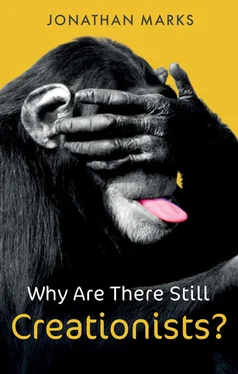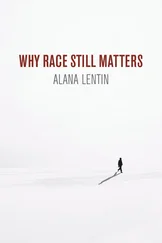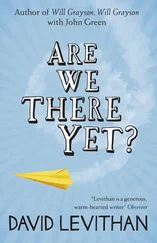For further information on Polity, visit our website: politybooks.com
This book was way too much fun to write. It was completed while I was a Director’s Fellow at the Notre Dame Institute for Advanced Study. I am very grateful to Brad Gregory, Meghan Sullivan, Don Stelluto, Carolyn Sherman, Kristian Olsen, and the rest of the NDIAS, for their support and collegiality. Parts of this book were presented in seminar there, and for participating in the stimulating and helpful discussion that followed, I thank Ani Aprahamian, Dylan Belton, Eileen Hunt Botting, Eric Bugyis, Fr. Terrence Ehrman, David Bentley Hart, Faisal Husain, Robert Latiff, Yulia Minets, Cara Ocobock, Matt Ravosa, Phillip Sloan, and Joshua Stuchlik.
For their especially valuable comments on the manuscript I thank Thomas Bolin, Neil Arner, and Sarah Morice Brubaker.
At UNC Charlotte I have benefitted from the wisdom of my co-instructor Joanne Maguire and my colleague Gregg Starrett. The lunchtime discussions with Mark Pizzato, Trevor Pearce, Bill Chu, Ron Lunsford, and Mike Corwin were also both fun and useful in shaping this book.
It has been a pleasure to interact with biblical scholars and theologians over the past few years, and I am particularly intellectually indebted to Celia Deane-Drummond and Agustín Fuentes and the other participants in their stimulating conference, “Humility, Wisdom, and Grace in Deep Time” back in 2017, which resulted in a wonderful volume called Theology and Evolutionary Anthropology . Thanks to my editor at Polity, Jonathan Skerrett, for seeing the manuscript through from beginning to end. Thanks to Karen Strier for decades of insights. For their encouraging notes and comments I thank the reviewers, especially Reviewer #1.
And as always, I am grateful for the support of my wife, Peta Katz, through the creative process and beyond.
There is a joke that goes, “What’s the difference between a biblical literalist and a kleptomaniac?” – “The biblical literalist takes things literally, and the kleptomaniac takes things, literally.”
The biblical literalist, however, also rejects what science says about where we came from, whereas the kleptomaniac, or at least the educated kleptomaniac, acknowledges that our bodies and genes are very similar to those of apes, and that a couple of million years ago in Africa, there were no people, but there were apes that had some key human features. The key features were small canine teeth, long thumbs, and a lower body that provided a range of movements like a human’s; that is to say, standing up, walking, and running.
A creationist is someone who accepts a literalist reading of the beginning of the Bible in lieu of the scientific narrative that our species has descended from other, earlier species over the course of hundreds of millions of years. 1There are of course many scholars who understand evolution, and science more generally, to refer to a set of secondary causes and processes, while simultaneously maintaining faith in a transcendent primary cause, who is in essence God-the-Evolver. 2Or, as theologian Sarah Coakley puts is, “God is that-without-which-there-would-be-no-evolution-at-all.” 3Whether life is ultimately meaningful is an interesting question, but not a scientific one – since science concerns itself with empirically based inferences, not with spiritual or moral propositions. At issue here is simply whether the origin of people involves apes as ancestors a few million years ago, as the comparative anatomical, genetic, and fossil evidence strongly seems to indicate.
Every generation of evolutionists, however, also inscribes their values into their science. That is not an adulteration of the science, but simply a consequence of being a cogitating social animal. Sometimes those values are sexist (see Charles Darwin’s Descent of Man , 1871), racist (see Ernst Haeckel’s History of Creation , 1876), cooperative (see Peter Kropotkin’s Mutual Aid , 1902), xenophobic (see Charles Davenport’s Heredity in Relation to Eugenics , 1911), colonialist (see William J. Sollas’s Ancient Hunters , 1911), egalitarian (see Theodosius Dobzhansky’s Mankind Evolving , 1961), hereditarian (see E. O. Wilson’s Sociobiology: The New Synthesis , 1975), or reductive (see Richard Dawkins’s The Selfish Gene , 1976).
Some scientists try to link their evolution to their atheism. That troubles me, because it makes a positive assertion – “God does not exist” – in the absence of appropriate scientific evidence and inference. Although that assertion is a reasonable hypothesis, I don’t think it is mandated by science.
So let me position myself. I am agnostic about God. I capitalize Him out of politeness and custom. But I do not know whether supernatural beings of any sort exist. If they do, that would be nice; and if they don’t, that also works. I find it difficult to believe that if they do exist, they would care whether or not I believe that they exist, when it would actually be very easy to convince me, if they really did exist and care. The only beings that I am aware of interacting with are the ones inhabiting the natural realm, not the supernatural.
I sometimes invoke God, but generally situationally and transiently; for example, towards the waning moments of a Carolina Panthers football game. Usually it doesn’t help.
I have no quarrel with people who believe in God, or are generally religious, as long as they don’t (1) maintain that their position is validated by science; or (2) try and wheedle me into adopting their beliefs. That directly parallels how I feel about atheists.
I don’t think it is “human nature” to believe in God, but I do think it is human nature to think symbolically and imaginatively, rather than resolutely materially.
With that out of the way, let me briefly answer the question posed in the title of this book. There aren’t “still” creationists at all. There have always been people who are uncomfortable with the idea that our species is the product of a naturalistic descent from ape ancestors. Christian fundamentalism, which dates to the early twentieth century, mandated a biblical literalist theology, but modern-day opposition to human evolution is actually the product of a reactionary descent from 1960s pseudoscience. In particular, it descends from The Genesis Flood , a book first published in 1961, and devoted to the proposition that everything you know about geology and earth history is wrong. Instead, there really was a worldwide flood a few thousand years ago in which Noah and his family and pairs of all the animals were the only survivors. And incidentally, evolution is wrong, because God had created all species ex nihilo not long before that.
The intellectual and cultural context of that book is worth considering. As we will note in Chapter 3, just a decade earlier the scientific community had been scandalized by a book that denied and rewrote not biology, but astronomy. It was published in 1950 and called Worlds in Collision . Its author was a Russian-born psychoanalyst named Immanuel Velikovsky.
Velikovsky took a classic question from outdated biblical criticism: Falsely assuming that stories are just poorly remembered histories, then what natural phenomena might have been mis-remembered in the Bible as miracles? He then combined his pseudo-biblical musings with his readings of other mythological corpora to arrive at a stunning conclusion: The Hebrew Exodus from Egypt under Moses was accompanied by the planet Venus shooting out of the Great Red Spot of Jupiter, veering close to Earth and causing the biblical Ten Plagues, then careening into Mars, before both planets eventually settled into their now-familiar orbits. Of course, the science of astronomy would have to be refitted to accommodate this bizarre theory.
Читать дальше












